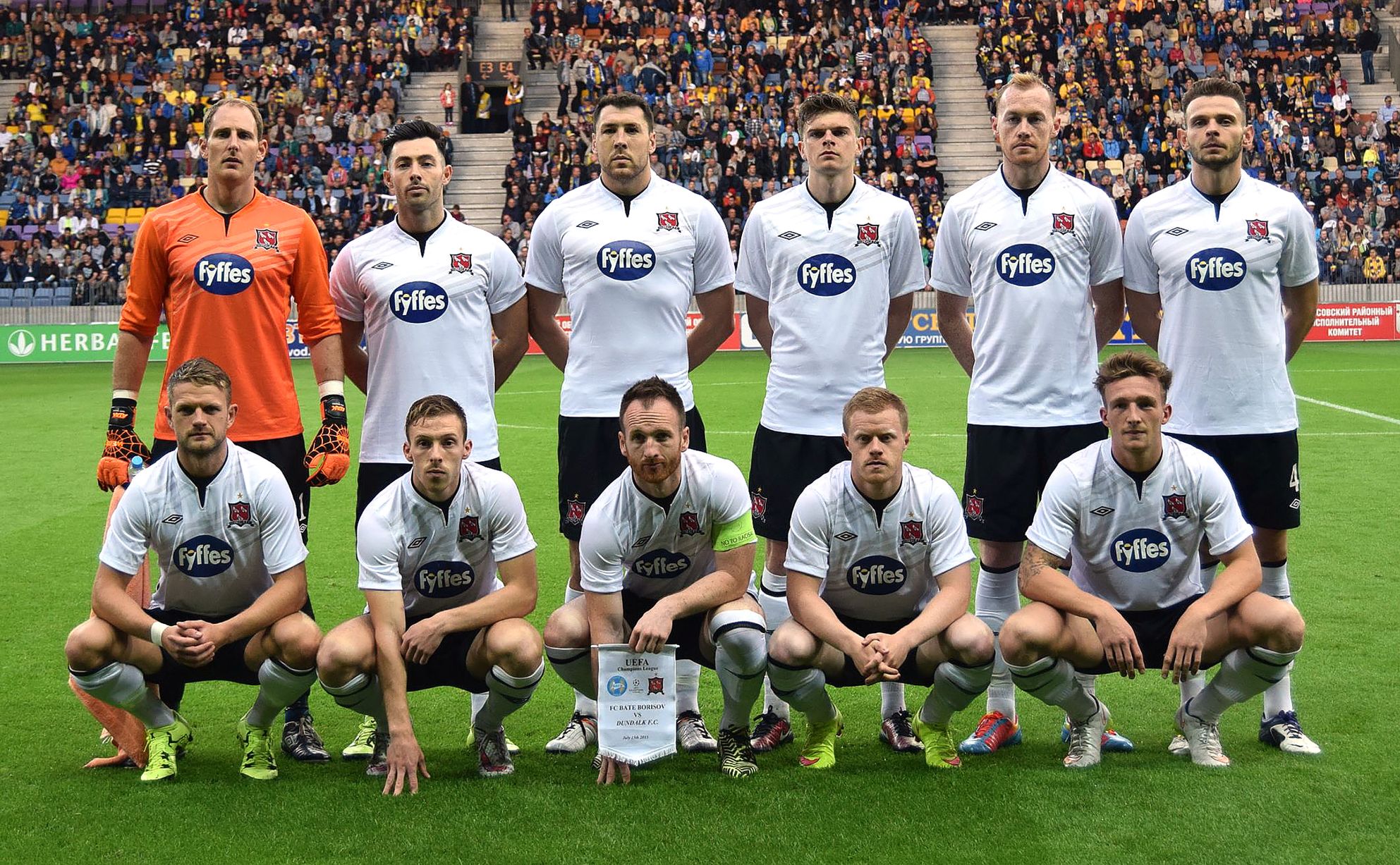By Andrew Warshaw
August 23 – There are plenty of fairytale footballing stories like Leicester City’s Premier League success and Wales’ rollercoaster ride at Euro 2016. But at European club level, few match that of tiny Dundalk in the Republic of Ireland.
Just four years after almost going out of business and playing before crowds of little over 200, the League of Ireland side face Poland’s Legia Warsaw in the Champions League playoff round tonight knowing that although their chances of survival are slim, they are guaranteed a place in the group stages of the Europa League.
Last week, the Lilywhites, whose supporters not so long ago handed round buckets in a ‘Save Our Club’ campaign, filled the national stadium in Dublin with 30,000 fans as they lost 2-0 to Legia in the home leg after switching the tie from their own tiny ground.
But that tells only half the story.
In the previous round, an incredible 3-0 second-leg victory over Belarusian champions BATE Borisov earned Dundalk a 3-1 aggregate victory. Republic of Ireland manager Martin O’Neill was so impressed he went into the dressing room to congratulate the players.
The lowest-ranked team ever to make it to the play-off tie for the group stage of Europe’s premier club competition, Dundalk may have little chance of progressing further but have already banked more than £4 million for their European exploits.
“This is beyond what we could have dreamed of,” Dundalk FC captain Stephen O’Donnell told the BBC ahead of the second leg against Legia. “We have come from nowhere. We are a club that has 3,000 seats in our ground. Already it’s been special and it’s captured the imagination nationally.”
In 2012, Dundalk (population 39,000) only managed to remain in Ireland’s top division because another club, Monaghan, went out of business instead. Fortunes quickly changed under fresh ownership. Manager Stephen Kenny was recruited without even being interviewed and last season the club won the league and cup domestic double. Now they are only the second Irish team ever to reach the final qualifying round of the Champions League after Shelbourne in 2004.
Kenny, who won the League of Ireland title with Bohemians in 2002-03, explained how fortunes were turned round. “Signing players with good characters and attitudes is important,” he said. “We work with a small background team but clear demarcation. The roles are very specific. Four or five of the lads are working during the day so we train during the evenings.”
Central defender Andy Boyle sells meat, his defensive partner Brian Gartland is a basketball coach while David McMillan is a part-time architect. The full-time players in the squad get paid in a year what many Champions League players earn in days.
“Other clubs will have players that played in the Euros. We have none. But we have a lot of young Irish players who have really excelled,” says Kenny, a former schoolboy with Arsenal. “I wouldn’t have chosen Dundalk, who were after having a disastrous time, but it was always a football town. In 2012, the crowds were in the hundreds and now we are averaging well over 3,000. You see little kids running round with Dundalk jerseys rather than Man United or Arsenal. They have their own heroes at Oriel Park now.”
Contact the writer of this story at moc.l1751839880labto1751839880ofdlr1751839880owedi1751839880sni@w1751839880ahsra1751839880w.wer1751839880dna1751839880

